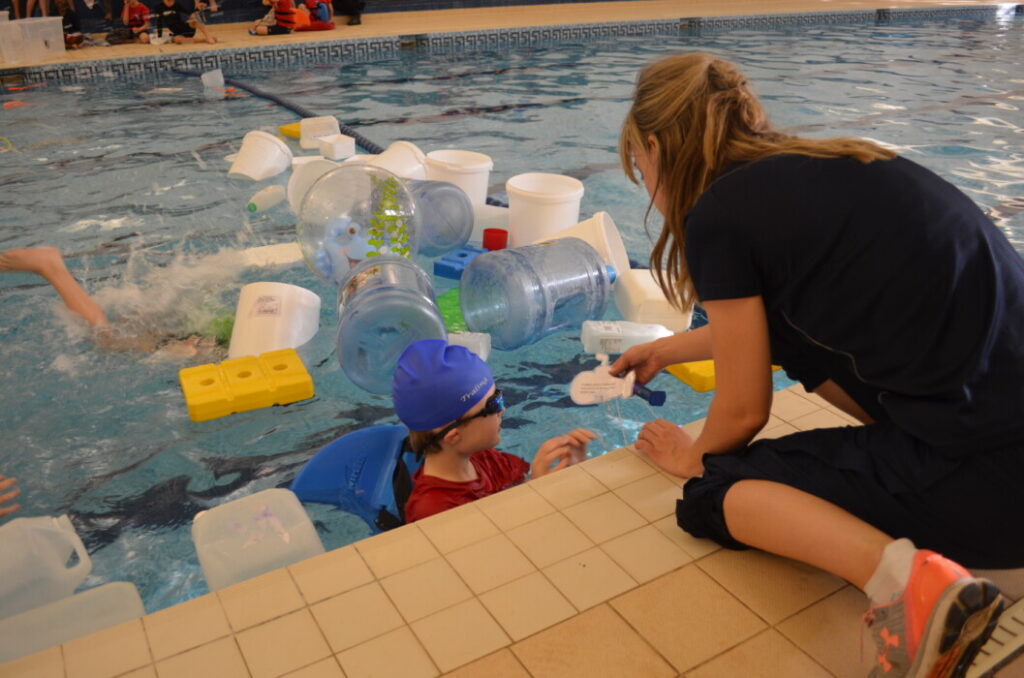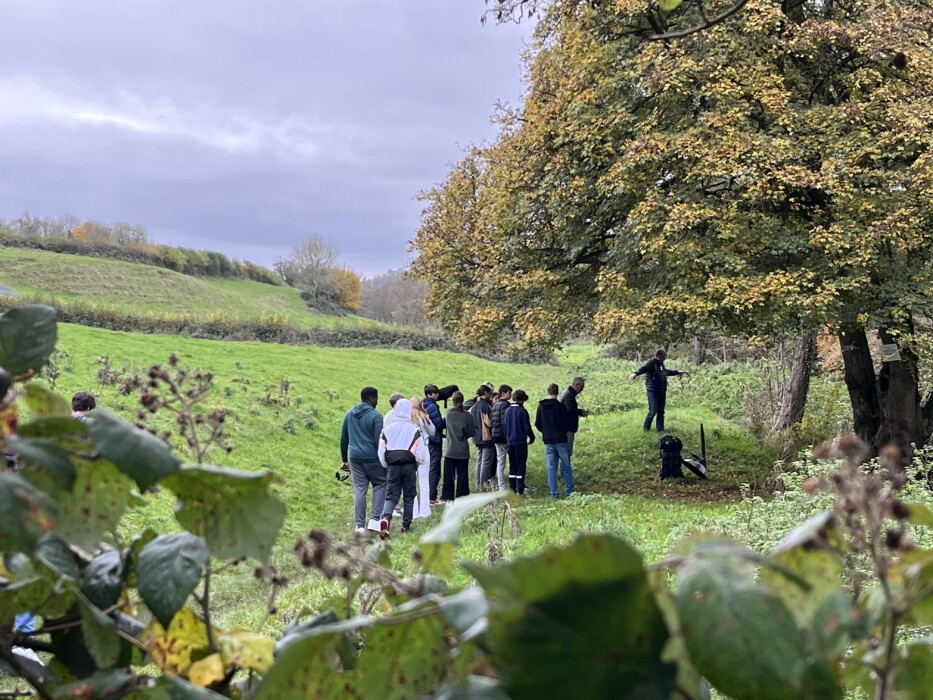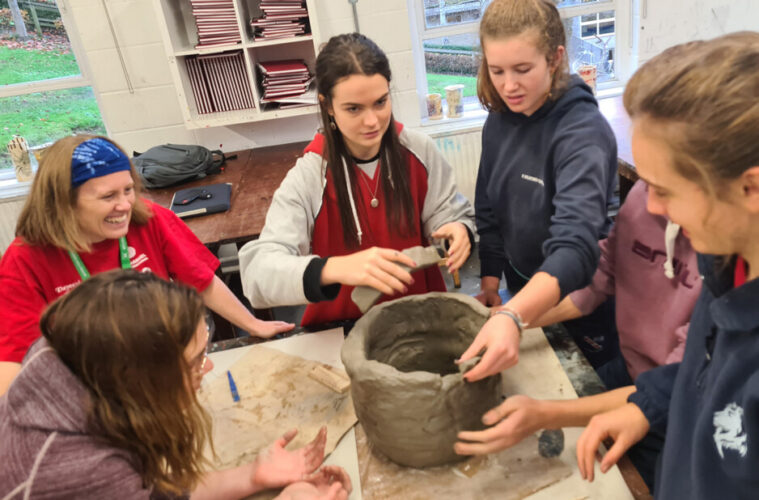Sarah Sidders, Resident Artist Conservation at Monkton Combe School, reports on the recent Sustainability Day that took place at the school to help students understand what they can to be more ecologically active
The aim of our whole school Sustainability Day, from Kindergarten to Sixth Form, was to help our students start somewhere, no matter what their pre-existing level of knowledge. Because the cumulative effect of small changes is the only way that sustainability will ever be achieved. Every molecule of CO₂ and every piece of plastic that is prevented from polluting the planet is a small victory.

We chose to have our sustainability day in response to COP26, the 26th meeting of the United Nations Annual Climate Change Conference. One of the objectives of the COP26 summit was to work together to deliver. We believe that this includes us doing our part as a school community to tackle the climate crisis in any way possible.
“As a Sustainability Committee we are particularly passionate about bringing more awareness to the breadth of this crisis and how it is a political, social and environmental issue. Our goal is to bring an atmosphere of change to the school and to encourage you both as individuals and as a collective. We understand that climate change is a daunting issue but it is also an urgent one. So we want to give you accessible, achievable acts of change that you can implement into your own lives.”
Bethany Bowerman, student

We invited a variety of speakers (listed at the end of this article) with the intention of accessing every part of the curriculum to highlight the fact that no discipline will remain untouched. We also had workshops on alternative ways to protest such as letter writing and finding your own voice.
Of course, these issues of climate change are having a profound effect on the mental health of young people so Monkton teacher Amy Case offered a MindFit session and we had Old Monktonian Jack Stafford talking about his own mental health recovery using sport and coaching.

The day itself enabled the younger years to be outside, interacting with the natural environment. This is proven to be the most effective way for young people (Reception to Year 9) to become aware of the issues concerning the natural environment and it is also enormously beneficial for our well-being. Through the whole school initiative of ‘Wild Monkton’ we continue to promote active use of the natural environment for academic and co-curricular learning for this very reason.
No one can do everything, but everyone can do something.
A huge thank you to all of our speakers:
- Greg Holder a National Geographic Educator and shark conservationist live from the Maldives
- Mark Adlington, a conservation collaborating artist
- Cecilia Allon, an’ environmentstrualist’ facilitating plastic free periods
- Mark Pearce an innovator in creating fuel and animal feed out of waste products
- Dave Carbury a professor in Chemistry researching material innovation
- Sophie Lang on fast fashion
- Tze Ching Yeung on consumer habits
- Gary Moor Sound recordist from the BBC recognising how the noise in our natural environment is changing
- Catia Squarcia from EcoACTIVE helping us to calculate our carbon footprint, GVI Sustainability to help students make sustainable career and gap year choices
- Adele Jones from the Sustainable Food Trust
- David Macdonald from Auditel showing how businesses can become Carbon Neutral and support the UN 17 Sustainable Development Goals
- Graham Mallard from Clifton College talking about how financial models can actively support sustainability
- Rachel Monger showing student how a simple clay stove can reduce carbon emissions in Africa
- Joe Robinson representing the Fisherman’s Rest charity and the work that they’re doing in Malawi.


